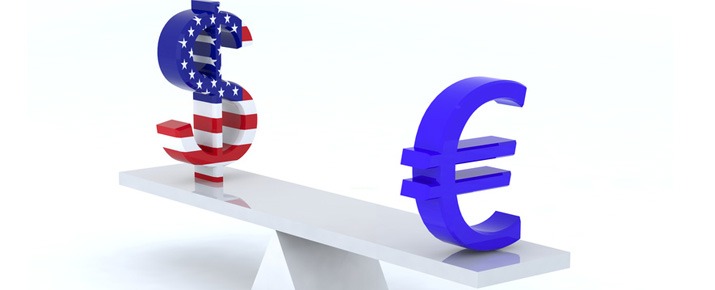Canadian Dollar: Election Outcomes And Currency Predictions

Table of Contents
Impact of Fiscal Policy on the Canadian Dollar
A government's fiscal policy – its approach to taxation and spending – significantly impacts the Canadian dollar. Different political parties have distinct fiscal platforms, leading to potentially divergent outcomes for the CAD.
Conservative Win:
A Conservative victory typically signals a potential shift towards lower taxes and reduced government spending. This approach aims to stimulate business investment and foster economic growth. Such policies could strengthen the Canadian dollar.
- Increased foreign investment: Pro-business policies often attract increased foreign direct investment (FDI), boosting demand for the CAD.
- Higher interest rates: To combat potential inflation spurred by economic growth, the Bank of Canada might increase interest rates, further strengthening the CAD.
- Stronger CAD relative to USD and other major currencies: A robust Canadian economy typically leads to a stronger CAD against other major currencies like the US dollar (USD), the Euro (EUR), and the British Pound (GBP).
Liberal Win:
A Liberal government generally continues its focus on social programs and may increase government spending. This approach, while beneficial for social welfare, could lead to an increase in national debt, potentially weakening the CAD.
- Increased government borrowing: Higher government borrowing to fund social programs could lead to increased interest rates, potentially impacting the CAD negatively.
- Slower economic growth: Compared to potentially more business-friendly Conservative policies, Liberal policies might result in slower economic growth, which could negatively impact the CAD.
- CAD stability or slight depreciation: The Canadian dollar might remain relatively stable or experience slight depreciation under a Liberal government, depending on the scale of government spending and its effect on inflation and interest rates.
NDP Win:
An NDP win could bring about significant increases in social spending and wealth redistribution. This might negatively impact business confidence and further increase government debt.
- Higher taxes and increased regulatory burden: Businesses might face higher taxes and a more stringent regulatory environment, potentially hindering investment and economic growth.
- Weaker economic growth and a depreciating CAD: The combination of higher taxes and increased regulatory burdens could lead to weaker economic growth, resulting in a depreciating CAD.
- Increased volatility: The uncertainty surrounding NDP policies could introduce increased volatility into the Canadian dollar exchange rate.
Influence of Trade Policy on the Canadian Dollar Exchange Rate
Trade policy plays a crucial role in determining the Canadian dollar's value. Each party's approach to international trade agreements and relationships, particularly with the US, can significantly impact the CAD.
Different Party Approaches to NAFTA/USMCA:
Each major party holds a distinct stance on trade agreements like the USMCA (United States-Mexico-Canada Agreement). This directly affects the Canadian dollar.
- CAD appreciation with free trade: A strong emphasis on free trade and open markets could lead to CAD appreciation as increased exports strengthen the currency.
- CAD depreciation with protectionist policies: Protectionist policies, such as increased tariffs, could lead to decreased trade and potentially weaken the CAD.
- Uncertainty and volatility: Uncertainty surrounding trade negotiations and potential shifts in trade relationships can increase volatility in the CAD exchange rate.
Impact on Canadian Exports and Imports:
Changes in trade policies directly influence the demand for the Canadian dollar.
- Increased exports strengthen the CAD: Increased exports lead to higher demand for the CAD as foreign buyers need to purchase the currency to pay for Canadian goods and services.
- Increased imports weaken the CAD: Increased imports mean more CAD is flowing out of the country to pay for foreign goods and services, potentially weakening the currency.
- Balance of trade is crucial: The balance between exports and imports (the trade balance) is a critical factor in determining the overall impact of trade policy on the CAD.
Predicting the Canadian Dollar's Movement Post-Election
While election outcomes are a significant factor, other macroeconomic elements influence the Canadian dollar's movement.
- Global economic slowdown: A global economic downturn could negatively impact the CAD regardless of the election result.
- Rise in oil prices: As Canada is a major oil producer, a rise in oil prices generally boosts the CAD.
- Interest rate differentials: The difference between Canadian interest rates and those of other countries significantly impacts the CAD's value. Higher Canadian interest rates attract foreign investment, strengthening the CAD.
Potential CAD exchange rate scenarios depend on the interplay of these factors and the specific policies implemented by the winning party. A pro-business government might lead to a stronger CAD, while a government focused on increased social spending could lead to a weaker CAD. However, global economic conditions and commodity prices will ultimately play a crucial role in shaping the CAD's post-election trajectory.
Conclusion
The Canadian dollar's value is intricately linked to election outcomes. Different parties' fiscal and trade policies can significantly influence investor confidence and the overall economic outlook, leading to fluctuations in the CAD's value. Predicting the precise movement of the Canadian dollar is impossible; however, understanding the potential impacts of various election scenarios helps businesses and investors make informed decisions. By analyzing the potential effects of each party's platform on fiscal policy, trade relations, and economic growth, you can better prepare for the post-election landscape. Stay informed about the upcoming election and follow the developments affecting the Canadian dollar to navigate the market effectively. Understanding the interplay between political decisions and currency fluctuations is key to managing your financial exposure to the Canadian dollar exchange rate.

Featured Posts
-
 How Middle Managers Drive Productivity And Improve Employee Engagement
May 01, 2025
How Middle Managers Drive Productivity And Improve Employee Engagement
May 01, 2025 -
 Portland Trail Blazers Play In Tournament Hopefuls Analyzing Their Chances
May 01, 2025
Portland Trail Blazers Play In Tournament Hopefuls Analyzing Their Chances
May 01, 2025 -
 Land Your Dream Job 5 Dos And Don Ts In Private Credit
May 01, 2025
Land Your Dream Job 5 Dos And Don Ts In Private Credit
May 01, 2025 -
 How To Make Delicious Crab Stuffed Shrimp In Lobster Sauce
May 01, 2025
How To Make Delicious Crab Stuffed Shrimp In Lobster Sauce
May 01, 2025 -
 The Michael Jordan Story Key Moments And Milestones
May 01, 2025
The Michael Jordan Story Key Moments And Milestones
May 01, 2025
Latest Posts
-
 Meet Remember Monday The Uks Eurovision 2025 Song Contest Entry
May 01, 2025
Meet Remember Monday The Uks Eurovision 2025 Song Contest Entry
May 01, 2025 -
 Eurovision 2025 Get To Know Remember Monday The Uks Act
May 01, 2025
Eurovision 2025 Get To Know Remember Monday The Uks Act
May 01, 2025 -
 United Kingdom Eurovision 2025 Introducing Remember Monday
May 01, 2025
United Kingdom Eurovision 2025 Introducing Remember Monday
May 01, 2025 -
 Eurovision 2025 Familiar Face To Represent The Uk
May 01, 2025
Eurovision 2025 Familiar Face To Represent The Uk
May 01, 2025 -
 Eurovision 2024 Sbs Hosts Courtney Act And Tony Armstrong
May 01, 2025
Eurovision 2024 Sbs Hosts Courtney Act And Tony Armstrong
May 01, 2025
